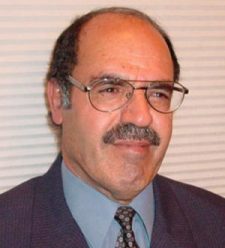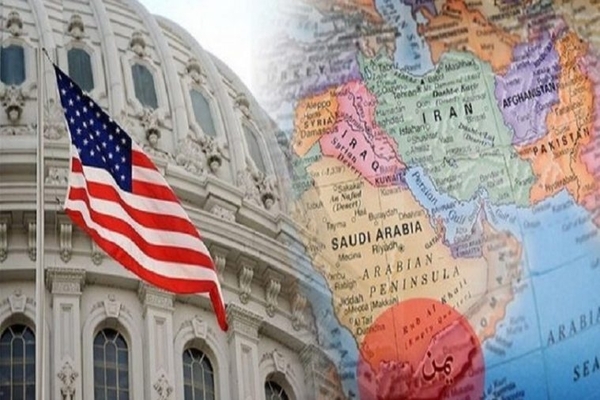لا يزال الوقت مبكراً جداً على ذبول الدولة في كوبا “المقال باللغتين العربية و الإنجليزية”

نقاش في مقالة كليف دوراند “التعاونيات الجديدة في كوبا”
د. عادل سمارة
تبدأ ، على مدار التاريخ، النظريات والمشاريع الإنسانية التي يصممها الإنسان غالباً على شكل حلم يبحث عن التنفيذ. والاشتراكية في كل من النظرية والتطبيق لا بد أن تكون منفتحة على الأفكار الخلاقة، والنقد والتجديد.
وحيث ان كثيرا من النقد تم ضخه ضد الأنظمة السابقة للاشتراكية المحققة، فإن كثيراً من الإطراء قد صُبَّ لصالح اشتراكية القرن الواحد والعشرين وخاصة في امريكا الجنوبية. في نقد الأنظمة الاشتراكية السابقة، فشل كثيرون في الفصل بين ثلاثة قضايا رئيسية في الماركسية: النظرية الماركسية، وتحليل ماركس للتطورات والحداث التاريخية أو الجارية في زمنه، وتنبؤات ماركس. ونقدوا ماركس على تحليلاته وتنبؤاته أكثر مما نقدوا، أو تمكنوا من نقد النظرية نفسها.
والأمر نفسه صحيح فيما يخص الأنظمة الاشتراكية السابقة حيث نقد الماركسية كثيرون على مشاكل البلدان الاشتراكية وذهبوا بعيدا في هذا الاتجاه متجاوزين او مبتعدين عن النقد النظري والأصيل وعن الإنجازات التاريخية للأنظمة الاشتراكية مما يصب أخيراً في طاحونة الثورة المضادة.
ما يلي نقاش لبعض القضايا التي طرحها كليف دوراند في مقالته “التعاونيات الجديدة في كوبا” منشورة في مونثلي ريفيو عدد نوفمبر 2017 والتي تلامس قضايا هامة في التطورات الجارية في كوبا.
إحدى القضايا المطروحة في هذه المقالة : هل تحتاج الاشتراكية للتخطيط المركزي؟
في المرحلة الانتقالية يكون الجواب نعم. ولكن السؤال: إلى اي مدى يمكن أن تستمر هذه الفترة الانتقالية؟ متى وكيف يمكننا قياس ذلك؟ هل ستكون لفترة قصيرة، مثلاً، بضعة عقود بينما المرحلة تستغرق عدة قرون؟ ليست هناك طريقة علمية لقياس طول أياً منهما مسبقاً.
لعل أحد العوامل التي تُقصِّر الفترة الانتقالية للاشتراكية هو خلق الطبقات الشعبية لحزبها الذي يعمل بناء على حاجاتها الأساسية، وتوجيهاتها، ورأيها، ومصالحها وثقافتها ورفاهها، الحزب الذي يصل السلطة على يد الجماهير ويستمر في تمثيلها، وتقوم الجماهير نفسها بمراقبته بشكل متواصل.
هل هذه هي حالة كوبا الآن، ام كلا بعد؟
قد يكون صحيحا في حال العالم الحالي بعد انهيار معسكر الأنظمة الاشتراكية، أن إمكانية التحول هو عبر تشارك في السلطة على شكل حكم الدولة بالتوازي مع انتخاب قيادة للتعاونيات من اجل قيادة وتخطيط مشترك (مشروطة بفترة انتقالية) ، وعن دور القيادة المنتخبة للتعاونيات والتي يمكن أن تتوسع على حساب تلك التي بيد الدولة أو الحزب.
والمقصود هنا هو توجيه التعاونيات كي تتطور كجسم واحد، ومن أجل مجانبة ان تكون عدة تعاونيات، لمنتجين كجماعة، تمثل كل جماعة نفسها كما هي الحال في المشاريع الخاصة.
يجادل دوراند:”هل الهدف المباشر للاشتراكي هو تطوير قوى الإنتاج أم ازدهار وضع الشعب؟”
لكن الجواب يجب ان يأخذ بالاعتبار:
في الفترة الحالية حيث ينتصر رأس المال على العمل على صعيد عالمي أم حينما يبدأ انتصار الاشتراكية على راس المال في معظم الكوكب. ولكن حتى حينما يصل العالم بدء انتصار الاشتراكية على را س المال، يجب ان يبقى الهدف الأساس هو تطوير قوى الإنتاج ذلك لأنه في ظل الاشتراكية فإن هذه القوى تتطور على يد الشعب نفسه بإرادة حرة وابتكار في مستويين:
- في عالم هيمنة راس المال، فإن الأولوية لدى الاشتراكية هي تطوير قوى الإنتاج، وفي العالم الاشتراكي،تهدف الاشتراكية إلى بناء مجتمع كفاية الذات والاعتماد على الذات التي تنجَز فقط عبر الإنتاج.
- إن الإنتاج العسكري التسليحي حاسم بالنسبة للاشتراكية للدفاع عن الذات في وجه أنظمة الراسمالية، ولكن دون السقوط او التورط في سباق التسلح، إن أمكن.
فالازدهار وحتى الرفاه يجب أن يرتكز على مجتمع منتج كي يستهلك منتجاته محرراً هو من الاغتراب فطالما أنت منتج فإنك ستحمي إنتاجك بالضرورة وطبعا بالوعي، بما ان ذلك نتاج شغلك الذهني والجسدي. وطالما أنك تُنتج، فإنك سوف تشعر بمتعة حياتك وسوف تستهلك بأسلوب يحترم ذاتك وبوعي.
كوبا لا تزال في وضعية حساسة وحرجة وانتقالبة. وفي هكذا فترة فإن أولئك الذين ينتجون أكثر وأفضل هم الذين يستحقون المكافأة الثقافية والمادية. وإذا كانت السوق ضرورية في الفترة الراهنة، فيجب ان تقسم إلى عدة أسواق داخلية ومترابطة/متمفصلة في بلد مثل كوبا اي إلى: أسواق أحياء، مقاطعات ومستوى وطني.لا يجب ان يعمل ايا منها مستقلاً، وإنما ضمن لجنة مشتركة مكونة من القوى الاجتماعية الثلاثة:الدولة، كممثل/مراقب باسم دائرة الرقابة والتنمية، مستقلة عن الوزارات والتعاونيات.ويجب ان يكون الدور الأهم لهذه اللجنة الثلاثية هو مراقبة الأسواق الثلاثة من جهة والدفع لتوحيدها جميعا، ومن ثم تذويب الجميع على المدى الطويل. وإلا، فإن البلد سيتم سحبها مجدداً باتجاه استعادة الرأسمالية.
لا يجب ان تبقى ملكية الدولة هي الوحيدة،هذا مع أن هيآت الدولة طالما منتخبة وبشكل حر حقيقي، فلا مشكلة بيروقراطية او فوقية او طبقية فيها ولكن تصغير تقليص ملكية الدولة يجب أن استبدالها برقابة محايدة، مثلا، اي وجود هيئة رقابة وتنمية مستقلة عن تاثير الوزارات وتتمتع بحق الرقابة على كل من نشاطات الحكومة والتعاونيات. ويجب ان تكون هذه اللجنة منتخبة/مسماة من قبل كل من الدولة، الملكية الخاصة والتعاونيات من جهة، وتتمتع بسلطة وتفويض بأن تقيِّم، وتراقب وتقرر كيف يجب توجيه ثقافة المجتمع ووعيه باتجاه الملكية الشعبية المباشرة في الكميونات بما هي اعلى مرحلة اشتراكية أي اعلى من التعاونيات. وهذه تحصل حينما تكون الدولة على حافة الذبول ، ناضجة للذبول.
في حالة الملكية غير الدولانية، يستفيد الأعضاء ، ويحافظون على موجودات التعاونيات، ولكن لا يتمتعون بسلطة وليسوا أحراراً في تقرير مصيرها، تغيير اتجاهها. إنها ملكية عامة والأعضاء مؤتمنون عليها لحمايتها وتطويرها كي تتناسب ولا تتناقض مع مجمل الاقتصاد والمجتمع. ففي الاقتصاد الاشتراكي يكون المنتجون منتجون أحرارا في إنتاج واستخدام واستهلاك ما ينتجون.
واشتراكية القرن الواحد والعشرون وبالرغم من حقيقة أنها لا تزال جديدة وتحت الاختبار، التجربة والخطأ، فقد تم إطراؤها كثيراً إما نظراً لفشل أنظمة الاشتراكية المحققة، أو فقط لأنها تجربة جديدة أو مدخلاً محاولة للقطع مع اشتراكية القرن العشرين. وفي الحقيقة، فإن هذا المدخل قد واجه مشاكل وصعابا منذ بداية فترته القصيرة المدى.
تجادل ورقة دوراند بأن الاشتراكية الجديدة تقوي المجتمع المدني. ولكن هذا المصطلح نفسه قد صيغ أصلا لوصف التناقض الطبقي بين:
- الطبقة الحاكمة، اي البرجوازية،
- والطبقات الشعبية.
فقد جادل انطونيو غرامشي بأن المجتمع المدني هو توسُّط بين الطبقتين المتعاديتين حيث تحاول كل واحدة فرض هيمنتها على الأخرى. وهذا يجب ان لا يكون في الحالة الكوبية وأي بلد اشتراكي إذا لم تكن هناك طبقة برجوازية حقيقية، لا في السلطة ولا في البنية المجتمعية.
في كوا، فالمجتمع المدني، إذا ما أصرينا على استخدام نفس المصطلح، يجب أن يكون امتداداً للديمقراطية الشعبية على حساب البنى البيروقراطية، مثلاً، لتوسيع الرقابة الشعبية وتفويض صلاحيات او سلطات أوسع في اتخاذ القرار، والنقد، والمصداقية. لإن هذه هي مكونات حوار داخلي ونقاش سلمي نحو حكم شعبي مباشر وباتجاه ذبول الدولة. وهذا النقاش والتقييم يمكن أن يحصل بين الدولة وممثلي التعاونيات في لقاءات كل ستة اشهر. وهذا معنى ديمقراطية الكومونات ، والتعاون واللامركزية.
كتب دوراند: “إنني احاول تفهم واستيعاب وصياغة تلك الجهود بمصطلحات الكومونز (يسميها هو التشاركيات). فقد وثق المؤرخون الطرق التي قامت بها الراسمالية بسحب تراكمها الأولي ممن جردتهم من ملكية الموارد التي هي ملكية للجميع – وهي عملية استمرت حتى الآن، كما كتب ديفيد هارفي وآخرون. إنني أرى أن بناء المجتمع والاقتصاد الاشتراكي كاستعادة/استرداد لتلك العملية، مثابة استعادة الكومونات – أي أن مختلف تلك المصادر تساهم في التنمية البشرية وبهذا تقوم بالأفضل حينما تتم مشاركتها والتحكم بها بشكل ديمقراطي من قبل الكميونة. وهذا يتضمن ليس فقط الغابات والحقول في الماضي ما قبل الراسمالي، ولكن ايضا، التعليم والصحة ونظام العناية، والحدائق العامة، والشوارع والطرق المائية والتشارك في الثقافة والمعرفة ومصادر المجتمع الإنتاجية“.
إذا كان الكاتب، دوراند/ قد عنى ب “المشاركة” إدارة جماعية بين كليهما، أي الدولة والكميونة، وليس الكميونة وحدها في المرحلة الاشتراكية كمرحلة انتقالية ، فذلك مفهوما. ولكن، إذا ما قصد ان تنتقل كلياً إلى الكميونة ، فذلك يجب أن يكون مدعوما ومحتضناً بوعي شعبي اشتراكي بل شيوعي. فهل هذه هي حالة كوبا اليوم؟
وفيما يخص القضايا الحساسة مثل التعليم والثقافة، فهذه يجب ان تبقى بإشراف لجنة مشتركة من الدولة ومجالس الكميونات طالما أنها قيمة استعمالية لا تقع تحت اي شكل من أشكال التبادل بمعنى القيمة التبادلية. فهي لا تُنتَج بشكل مباشر ، ولا بأي اسلوب يبتغي أية منافع مادية ولكنها مساهمة هامة جدا في تطوير وإنتاج قيماً مادية. وعليه، فهي لا بد أن تحظى بحماية هائلة من أي شكل من اشكال الثقافة الراسمالية ومن طرائقيي الرأسمالية، طالما أن هناك سوقاً وقطاعا خاصاً حتى لو كان صغيراً وتحت رقابة الدولة.
يقول دوراند:
“…إذا كان البناء الاشتراكي يمثل استعادة ما وضعت الراسمالية يدها عليه من موارد التي هي حق للكميونتي ، فإن هذه الموارد قد تمت استعادتها في الحالة الكوبية من الدولة –بمساعدة نشطة من الدولة نفسها. وهذه يمكن أن تُرى بشكل حاد فاقع في تحويل مشاريع الدولة مثل المطاعم وخدمات النقل وشركات البناء للتعاونيات”
ولكن، من الذي يجب ان يختبر العلاقة بين التعاونيات. اعتقد ان هذه الحالة تحتاج إلى لجنة تنسيق تتكون من:
- لجنة ممثلين منتخبة من القاعدة
- لجنة تنمية ورقابة لا تخضع للسلطة
- الدولة
والبند رقم اثنين هو الأكثر مصداقية بين الثلاثة.
وكتب دوراند: “…منذ 1968 جرت إدارته على يد الحكومة وقد تحول الان لمستخدمي الدولة السابقين، لكي تدار على يد العمال–المالكين لهذه الأعمال …وقد تم إجراء دراسات أولية بينت ان متوسط الدخل بين التعاونيات قد ازداد بأكثر من سبعة أضعاف“.
إن القفزة الواضحة في دخل أعضاء التعاونيات يتطلب نقاشاً، لماذا؟:
- هل كان هو بسبب الإدارة السيئة لمشاريع الدولة؟ إذا كان الأمر هكذا، فهو يعني أن مزيداً من الخصخصة هو الحل الأفضل!
- هل سوء إدارة الدولة هي مسألة حتمية، أم أنها خطىء إنساني؟
- إذا كانت خطئا بشريا، فذلك يعني أن التعليم الاشتراكي ليس فعالاً بعد. وإذا كان العمال والشعب عموما غير مقتنعين بأن العمل المشترك هو مسألة أخلاقية وإنسانية، فذلك يعني أن الاشتراكية قيد الخطر.
- هل تقدم زيادة الضرائب حلاً؟ أم أنها تحكُّم الدولة، أي ليست برنامجا اجتماعياً.
هذه الأمور يجب أن تدرس بعناية. أنا أعتقد بأن تشريك المجتمع يحتاج إلى شكل جديد من البرلمان، بأن يُنتخب من جهة وأن يشارك في التحكم بمختلف مستويات الحياة بما فيها الدولة، والحزب والتعاونيات من جهة ثانية. هذه يمكن أن تكون سلطة إنتقالية باتجاه ذبول الدولة. إن التعاونيات هي مدارس اشتراكية صغيرة على المستوى التجريدي، ولكن عملياً كيف يمكن تجنب الصراع بين العديد من المدارس الصغيرة!
يقول دوراند:
” على سبيل المثال، حينما زرت مشغل خياطة في وسط هافانا كان يُدار في السابق حكومياً ينتج قمصانا وملابساً، وصفت المديرة المنتخَبة زميلاتها ب “عاملاتي” هذا مع انها تجيب على تساؤلاتهن في الاجتماع العام الشهري . إن العادات القديمة متجذرة بعمق …. وبأن تجاوزها لا يتأتي بمنح سلطات اعلى أو بالتمتع باستقلال ذاتي. لهذا السبب، فإن معهد الفلسفة في البلاد يقود ورشات تدريب لأعضاء التعاونيات الجدد، ويعلم المدراء والأعضاء على ممارسة ديمقراطية التسيير الذاتي“
هذا يعني بأن هناك حاجة ماسة لتثقيف عميق ودؤوب. إن محتوى المفردات ومعانيها على جانب كبير من الأهمية. والسؤال الان: ألا يعني هذا بأنه من المبكر جدا التاكيد على أن كوبا وصلت حالة “الإنسان الاشتراكي كما حلم تشي جيفارا” اي الإنسان الذي تجاوز الملكية الخاصة، الأسواق، الإيديولوجيا، دور الدولة، العملة…الخ.
وفيما يخص حانوت الحلويات حيث:
“… في حانوت الحلوى حيث يعمل العمال نصف الوقت الزمني ومع ذلك يُدفع لهم أضعاغ ما يحصل عليه عمال الدولة“.
ولكن، لنفترض أن عمال حانوت الحلوى هذا قرروا افتتاح فروع أخرى لحانوت الحلويات والتي إما أن تتنافس مع محال حلويات أخريات، أو لكي تكسب ربحا أكثر، فهل سيكون هذا مقبولا؟ وإذا كان الجواب لا، فلماذا إذن؟
أليست التربية الاشتراكية ضد الادخار الربحوي طالما الدولة توفر لهم العمل والحياة المناسبة/ فلماذا الربح الزائد؟ أم انهم يخافون سقوط النظام باعتباره مؤقتا؟
وإذا كان توسعهم مقبولا، فإن هذا طريق جديد لرسملة الاقتصاد وحتى بتوجه احتكاري. وإذا لم يكن التوسع مقبولاً، فهل سيكون فرض ضرائب أعلى هو الحل الأفضل والنهائي على المدى البعيد؟.
كتب دوراند:
“… وكما اشار راؤول كاسترو في تقريره للمؤتمر السابع للحزب, فإن ” إيديولوجيا البرجوازية الصغيرة تتصف بالفردانية، والأنانية، والبحث عن الربح،والتفاهة، وتكثيف الاستهلاك” فإنه بزيادة الضرائب، والرقابة، فإن البرجوازية الصغيرة سوف تتماهى مع الاشتراكية، ولكنها هي نفسها ليست اشتراكية”
هذا صحيح، لكنه ليس حلاً. إن الحل الحقيقي للاشتراكية، وهو صعب،هو بالنجاح في ذلك عبر الحوار والتعليم الشعبي وصولا إلى الأهداف الرئيسية التالية:
- العمل كعادة ورغبة ذاتية
- الثقافة الاشتراكية للحلول محل الثقافات الأخرى.
والمشكلة المعقدة هنا هي ان الضرائب الأعلى تُخبر الشعب بأن التراكم ممنوعاً، ولكن هذا لا ينجح في تعليم الناس بأن مراكمة النقود ليست ضرورة وبأنها ليست ذات فائدة في مجتمع اشتراكي. وحينما يصل البشر إلى هذه المرحلة أو المستوى، فإنهم يكونوا قد دخلوا مرحلة ذبول الدولة والعملة. حتى اليوم فإن التثقيف الاشتراكي هو الحل الممكن.
لقد بينت دراسات حديثة بأن الإمبريالية الأمريكية تراقب كل حركة لأي شخص. وفي مرحلة معينة من التطور الكنولوجي، فإن بوسع بلد اشتراكي أن يبني شبكة تكنولوجيا تراقب كافة محطات التوزيع وتزودها بالمعلومات عن حاجات كل فرد وحقه في الاستهلاك. وفي هذه المرحلة، يصبح فائض النقود بلا فائدة أو معنى. هل هذا منطقي، إلى أن يبلغ الوعي بالناس كي يستهلكوا فقط ما يحتاجون؟
ويضيف دوراند:
“…يمكن منع العمل الخاص من النمو بشكل واسع بواسطة الضرائب التصاعدية وسياسات الجمارك، وإذا ما بلغ العمل الخاص درجة معينة، يمكن تحويله إلى تعاونية، وعليه فإن جميع المستخدمين يتشاركون في الربح واتخاذ القرار“.
قد يكون هذا حلا مؤقتاً، وإذا ما كان العمال لم يؤمنوا بعد بالتعاونيات، فإنهم سوف يعملون بشكل او جهد أقل، وهي بالطبع عادة سيئة على الرغم من حقيقة انه أمر جيد للعمال بأن يفهموا أن الربح الفائض لا فائدة منه على الأقل، وفي البداية، حيث لا مجال لاستعماله. وهذا يذكرنا بمشاكل واجهت الاتحاد السوفييتي حينما قام الفلاحون متوسطي الحال بذبح مواشيهم لمقاومة سياسة الحكومة بتمويل الصناعة من فائض الزراعة. وحتى لو تم تحويل المشروعات الخاصة إلى تعاونيات، فإن العلاقات فيما بينها يجب أن يتم تناولها بشكل مختلف وخاصة لأن الشعب لا يزال ثقافيا في مستوى الوعي التعاوني وليس الاشتراكي. وأخيراً، إذا ما استمرت العملية، كما يحاجج دوراند، فإنني اشك بأن ذبول الدولة سيكون ممكناً.
أخيراً يجادل دوراند:
“… يمكن فهم التعاونية كنوع من تشاركية العمل. إنها تشاركية العمل بين فريق من العمال الذين يفهمون بوعي توجيه عملهم مباشرة نحو أهداف نبيلة يتشاركون فيها مع الكميونتي الأوسع. تأخذ التعاونية بالاعتبار الشخصية المجتمعية: فالحياة اليومية العملية للشخص ترتكز على العلاقات الاجتماعية التعاونية وأخلاق التضامن. إن المشاركة في اتخاذ القرار تحفز ممارسة المسؤولية الاجتماعية. إن مصلحة الفرد مرتبطة بالمصلحة العامة. إنها تُطور الكائن الاجتماعي ، أو كما وصفها ماركس، “وجود النوع“. إن التعاونيات لا تقوم فقط بالعمل الاجتماعي، بل هي تجعل العامل اجتماعياً. إن التعاونيات مدارس اشتراكية صغيرة“
وبينما تحكم الدولة نيابة عن الجميع، فإن الفقرة أعلاه حقيقة وواعدة طالما تتحول التعاونيات إلى “تعاونيات”. هذا هو السؤال.
المقال باللغة الإنجليزية
Cuba’s State withering … Still Too Early!
A discussion on Cliff DuRand’s article “Cuba’s New Cooperatives”
By Adel Samara
As a dream, theories and projects are designed by human beings since the beginning of history. Socialism in both, theory and practice is and must be open for creative ideas, critique and renewal.
While a lot of critique has been devoted against former socialist regimes, it is noteworthy that a lot of praise has been granted to socialism of 21 century especially in South America.
In the critique of ex-socialist regimes, many writers failed to differentiate among three issues in Marxism: Marxist theory’s, Marx’s analysis and Marx’s predictions and criticized Marx for his analysis and even predictions more than his theory!
The same is also true for ex-socialist regimes that many criticized Marxism for the problems of the socialist countries and went deeply in that direction to transcend theoretical and genuine critique and the historical achievements of the socialist regimes to support the counter-revolution (CR).
The following is a discussion of some points in Cliff DuRand’s article “Cuba’s New Cooperatives” (published in Monthly Review, November 2017) which touches upon important issues in current developments in Cuba. (See below, KOL editor)
One of the raised points is: does socialism need central planning?
In the transitional period the answer is yes. But the question is: for how long it might stay? Who and how we are able to measure it? Will it be for a short period, i.e. several decades while stage might continue for centuries? There is no scientific way to estimate length of any of both in advance.
One of the factors which might shorten the socialist transitional period is popular classes’ creation of a political party by the masses that are working according to their essential needs, orientation, opinion, interests, culture and luxury, a party that arrives to power by the masses and continues to represent them (the masses), and the masses themselves control it continuously.
Is this the case in Cuba now, or not yet?
It might be right in the current world situation after the collapse of the socialist camp, that the possible transition is through power sharing in the form of state role and a parallel elected leadership of cooperatives for joint planning and leading, and through (and conditioned by experimental period), the role of the elected leadership of cooperatives which might be expanded over that of state or party.
The point here is to orient cooperatives to develop as one body, and to avoid being several cooperatives, common producers, each represents itself as the case in private projects.
DuRand argues: “whether direct goal of socialism is development of forces of production or the flourishing of the people?”
The answer must consider when?
- Is it in the current period where capital gains victory over labor on world scale,
- Or, when socialism starts victory over capital in most of the globe.
But even if the worlds reach point b, the direct and continuous goal is development of forces of production because under socialism it is developed by people themselves in free will and contrive in two levels:
- In a world of capitalist hegemony, the priority for socialism is the development of forces of production, and in a socialist world, socialism aims at building a self-satisfied, self-dependent society which is achieves only through production.
- Military production is vital for socialism for self-defense against capitalist regimes, but without falling in arms race, if possible.
Flourishing and even luxury must be based on a workable and productive society to consume its’ own products liberated from alienation. As long as you produce, you will protect your production, the result of your mental and manual work. As long as you are producing, you will enjoy your life and you will consume in a self-respected and conscious manner.
Cuba is still in a critical and transitional period. In this period those who produce more and better deserve material and cultural rewards.
If the market is a necessity in the current period, it must be divided into several internal, connected, and controlled markets in a country like Cuba: neighborhood, district and national scales. None of them must work independently, but in a joint committee composed of the three main social powers: the state, a representative/observer from Department of Control and Development (DCD) independent from ministries and cooperatives. The most important role of this mixed committee is the control of three markets on the one hand, and to pressure to unite them and terminate them in the long run. Otherwise, the country will be pulled back the markets towards capitalist restoration.
State ownership shouldn’t stay as the sole one, but the minimization of state ownership must be substituted by neutral control, i.e. an independent DCD which is independent from the influence of ministries and enjoys control over both governmental and cooperative activities. DCD must be nominated by state, private ownerships and cooperatives on the one hand, and delegated power to estimate, control and decide how to orientate people’s culture and consciousness towards direct people’s ownership in communes which is a higher socialist stage than cooperatives. This will be on the edge of state withering.
In non-state ownership, the members benefit, use and maintain assets of cooperative, but do not own the power and/or is not free to determine its’ fate. It is a public ownership and the members are “trusteeship” to protect and develop it to fit and not contradict the whole economy and society.
In socialism, economy as production, circulation consumption is not separated from society. People are free producers and free users and consumers of what they produce.
Socialism of 21rd Century
Despite the fact that it is still very new and under experiment, or trial and error, it has been praised a lot either because of the failure of socialist countries or just because it is a new approach attempting to break with socialism of 20th century. In fact, this new approach faced problems since its’ first short life.
DuRand’s paper demonstrated that new socialism empowers civil society. But this term was originally designed to describe the class contradiction between:
- The ruling class, i.e. the bourgeois,
- And the popular classes.
Gramsci argued that civil society organizations mediate between the two class enemies, each tries to impose its’ own hegemony.
This shouldn’t be the case in Cuba or any socialist country if there is no real bourgeois class, neither in power nor in the social structure.
In Cuba, the civil society, if we insist on using the term, must be an expansion of popular democracy at the cost of bureaucratic structures, i.e. to enlarge popular control and delegate more decision making, critique, and accountability. Those are the components of internal and peaceful dialogue and debate towards direct popular rule and state withering.
This debate and evaluation might take place between the state and cooperative representatives on periodic six-month meetings. This is the meaning of commons democracy, cooperation and de-centralization.
DuRand wrote:
“I want to try to conceive of these efforts in terms of the commons. Historians have long documented the ways that capitalism drew its early accumulation from the dispossession of commonly owned resources—a process that continues to this day, as David Harvey and others have pointed out. I conceive of the building of a socialist society and economy as a reversal of this process, a reclaiming of commons—that is, all those resources that contributes to human Development and does so best when shared and governed democratically by a community. This includes not only the forests and fields of the pre-capitalist past, but also education and health Care systems, parks and streets, waterways, and the shared culture, knowledge, and productive resources of a society.”
If the writer means by “shared” a joint management by both, the state and the community, not by community alone in the socialist period as a transitional one, it is understandable. But if he meant to be totally transferred to the community, this must be supported by a popular socialist and even communist consciousness.
Is it the case in Cuba now?
As for sensitive issues such as education and culture, I think it must stay directed by an elected joint state and community council as long as it is a use value that has nothing to do with any form of exchange. It does not produce directly, or even in a vulgar manner, any material benefits but it is a significant contributor in developing/producing material values. Accordingly it must be highly protected from any form of capitalist culture and roaders as long as there is market and private sector even if it is small and under state supervision.
DuRand argues:
“ If socialist construction represents the incremental reclaiming from capital of resources that rightly belong to the commons, in the case of Cuba, those resources are being reclaimed from the state—with the state’s own active assistance. This can be seen most starkly in the conversion of state enterprises such as restaurants, factories, transportation services, and construction companies into cooperatives”
But, who must control or examine relationships between cooperatives? I think this case needs a coordination committee composed of:
- Elected representative committee form the base
- DCD which is not subjected to the authority
- The state.
Item b is the most authentic one among all three.
DuRand writes:
“ since 1968 had been run by the government are now being turned over to their former state employees, to be managed by the worker-owners of these businesses…Initial studies have shown that average incomes among cooperative workers have increased by as much as three to seven times.”
The obvious jump of income of cooperatives members deserves discussion.
- Why? Is it due to mismanagement of state projects? If this is the case, it means that more privatization is the best solution!
- Is the state bad management imperative, or it is a human fault?
- If it is a human fault, then it means that socialist education is still not effective. If workers and people in general were not persuaded that joint work is a high moral and human issue, then socialism is under threat.
- Does increased tax provide a solution? Or it is the state control, but it is not an educational program.
This issue needs to be studied carefully. I think that socialization of the country needs a new form of parliament, to be elected on the one hand, and control all aspects of life including, state, party and cooperatives on the other. This might be a transitional authority towards state withering.
Cooperatives are small socialist schools in the abstract level, but in practice how to avoid conflict between the many small schools?
DuRand notes:
“For example, when I visited a formerly state-run sewing workshop in central Havana that makes guayabera shirts and dresses, the elected manager called her fellow associates “my workers,” even though she effectively answers to them in their monthly General Assembly meetings. Old habits run deep, and it appeared that the main change for her under the new model was that she no longer had to clear her decisions with higher authorities, and now enjoys some autonomy. For this reason, the country’s Institute of Philosophy conducts regular training workshops for new cooperatives, educating members and managers in practices of democratic self-management.“
This meant that a deep re-education is desperately needed. The content of vocabulary is important. The question here is: Does that meant that it is so early to confirm that Cuba reached the “Socialist man- as Che dreamt” whose consciousness transcends private property, markets ideology, state role, currency…etc.
Regarding the example of pastry shop, where:
“… pastry shop where members can work half-time and still take home many times the pay that state workers receive”.
Suppose that the pastry shop workers want to open other branches which either compete with another pastry shops or to gain more profits, will it be accepted? If the answer is not, then why?
If their expansion is accepted, this might be a new way for re-capitalizing the economy even in a monopoly fashion. And if it is not accepted, will imposing higher tax be the proper and final solution for the long-run?
DuRand wrote:
“…As Raul Castro pointed out in his report to the Seventh Party Congress, “petty bourgeois ideology [is] characterized by individualism, selfishness, the pursuit of profit, banality, and the intensifying of consumerism.” With effective limits, taxation, and controls, a petty bourgeoisie may be compatible with socialism, but it is not socialist”
This is right, but it is not a solution. The real but difficult solution for socialism is to succeed through dialogue and pedagogy to reach two main goals:
- Work as habit and self-desire
- Socialist culture to replace other cultures.
The complexity here is that higher tax tells people that money accumulation is forbidden, but this didn’t succeed to teach and persuade people that money accumulation is not necessary and useless. When human beings reach that stage or level, they enter an era of state and currency withering. Until today only socialist education is the possible solution.
Recent studies show that US imperialism controls every single act of each person. At a certain stage of technological development, socialist country might build a technological network that controls all distribution stations fed of information about everyone and his needs, his right of consumption. In this stage, the surplus money is worthless. Is this reasonable, until people reach the consciousness, to consume only what they need?
DuRand adds:
“ Private business can be prevented from growing too large through progressive taxation and customs policies, and if a private business reaches a certain scale, it can be converted to a cooperative, so all employees can share in the profits and decision-making.”
This might be a temporary solution on the one hand, and if the workers still did not believe in cooperatives, they will work less on the other, which is a bad habit despite the fact that it is good for workers to understand that surplus profit is useless. This reminds us of the problems that faced USSR when peasants slaughtered their animals to resist agricultural financing of industrialization.
Even if the private businesses are converted to cooperatives, the relationship between them needs to be tackled in a different manner especially since their people are still culturally at the level of cooperation not socialism.
Finally, if the process will continue as DuRand argues, I doubt that state withering will be possible.
Finally, DuRand wrote:
“A cooperative can thus be understood as a kind of labor commons. It is a commoning of labor among a group of workers who then consciously direct their efforts toward goods and goals shared both by them and the larger community. Cooperatives nurture a social personality: one’s daily worklife is based on cooperative social relations and an ethic of solidarity. Participation in collective decision-making promotes practices of social responsibility. Individual interest is linked to a common interest. It thus develops one’s social being, or as Marx put it, one’s “species being.” Cooperatives not only socialize work; they also socialize the worker. Cooperatives are little schools of socialism.”
While state rules on behalf of all, the above paragraph is right and promising and as long as cooperatives transform to “COOPERATIVE”. This is the question.
- The opinions and views expressed in this article are the author’s own and do not necessarily reflect the opinion of Kana’an’s Editorial Board.







